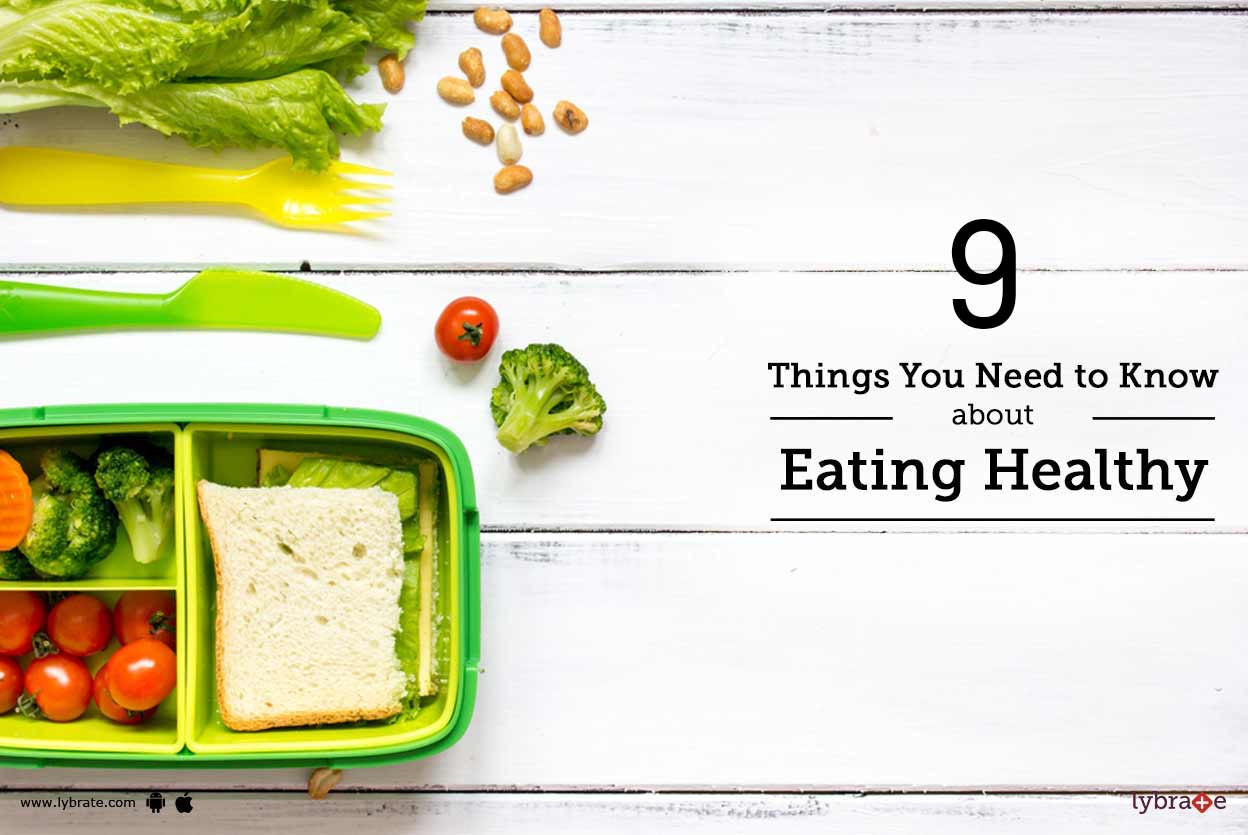Get the App
For Doctors
Login/Sign-up
Last Updated: Jan 10, 2023
BookMark
Report
9 Things You Need to Know About Eating Healthy
Dt. Archana BatraDietitian/Nutritionist • 18 Years Exp.Diploma in dietetics, PG certificate in Diabetes Education, BPTh/BPT, Verified Certificate in Nutrition for health promotion and disease prevention
How can you eat healthy? This is a question that plagues many of us. The quest for a youthful looking body that is also slim and well-toned is something that we all strive for. On the other side of the spectrum, we also have people who are concerned about too much of weight loss, fatigue and general weakness. So what all can you do to ensure that you indulge in healthy eating for a healthy body and mind? Try these nine tips.
- Eating the Right Carbohydrates: Choose the right carbs that will help you pile up on energy with the right kind of food. Sugar and flour can cause an overload of carbs in your digestive system, while oats, cereals and complex carbs like whole grains are high in fibre.
- Lean Protein: Avoid red meat and make a beeline for fish and other lean protein that will give you omega three fatty acids in the process as well. This includes fish and chicken.
- Good Fats: There are four major types of dietary fat found in food from plants and animals - Good Fats(monounsaturated and polyunsaturated fats including omega-3s), Bad Fats(trans fats), and Saturated Fats. Good fats can improve blood cholesterol levels, lower your risk of heart disease, and benefit insulin levels and blood sugar. Omega-3 fats are particularly beneficial for your brain and mood. The best sources are fish, nuts, and seeds.
- Superfoods: Berries and all their variants have come to be known as super foods. These are rich in anti-oxidants which can encourage better brain health. This includes blueberries, cranberries and even salmon and seaweed, used in Oriental cooking.
- Salt Intake: Limit your salt intake but do not cut it out entirely. Ensure that you take NO MORE THAN A TEASPOON OF SALT A DAY. Try to avoid packaged food as it is high in salt content.
- Water: Stock up on water so that you get plenty of hydration and avoid needless snacking. Avoid sugary drinks and too much of caffeine.
- Count the calories you need: Do not simply needlessly cut down on calories, but rather calculate the number of calories you need to function on a normal basis. Then, build a diet chart around this and avoid empty calories like excessive sugary food.
- Breakfast: This is the most important meal of the day which also fuels you into action and can potentially stop you from snacking and overeating.
- Slow: Eat slowly and have small and frequently meals for healthy eating.
Try these healthy eating tips to change your mind set towards food and nutrition. If you wish to discuss about any specific problem, you can consult a dietitian-nutritionist and ask a free question.



+1.svg)
